On the day my husband planned to die, I woke him early for a last bath. “I’m so tired,” Clarence said, pulling the sheet up to his chin. I turned over, leaned in and gave his chest a dramatic sniff.
“Don’t you want to meet your Maker smelling fresh?” I didn’t actually care how he smelled, but at this point in our 42-year marriage, I’d unintentionally changed his role from husband to beloved child. I wanted to wash him, swaddle him, bundle him in my arms and perhaps even change his mind. This bath would be our last time alone together in this life. My last time to see him sitting at the other end of our tub built for two.
You may unsubscribe from any of our newsletters at any time.
I ran the water, putting in plenty of Epsom salt and essential oils. He held my hand as he stepped into the bath, settled himself at his end and closed his eyes.
I didn’t want to see him lying there with his eyes shut. I needed to pretend it was Friday night and we were discussing world politics with a glass of wine and a plate of crackers nearby. But he was tired. Alone with me, he could stop pretending to be okay for the sake of our kids. He was finally getting what he’d wanted for the last few months as his cancer pain worsened: an end to his suffering.
We’d had a bit of trouble picking a date. He wanted Christmas; I hoped for summer. We settled on the end of March 2018. The date drew closer and our nights became longer as we went to bed early and got up late. We redefined the act of spooning, wrapping ourselves around each other in a desperate expression of our vows, the two becoming one.
More on Broadview: Will Canada let Ron Posno die on his terms?
Lying opposite him in the bath, I chatted like it was any other day. Every now and then, he’d open his eyes and smile at something I said. Mostly, he rested and I talked. And talked. Finally, we could hear the household stirring and knew it was time to get out. He wanted to put on a pair of jeans.
“Jeans!” I said. “And a belt? Are you going out somewhere? Why not be comfortable?” I brought him a pair of soft pyjama pants and a T-shirt. He let me help him get dressed without a single argument. I really wanted him to fuss a bit more because I knew he hated being told what to wear. This casual acceptance meant that he was already moving away from me, even as I held his hand. Even as we walked into the living room where our children were waiting. He sat down in his favourite chair, and I prepared his medication one last time so he could be almost pain-free when he died.
We had breakfast, keeping it casual, though it was hard to see his inability to swallow his last meal. My three daughters and son-in-law took turns sitting beside him, holding his hands.
And then came a knock at the door. Clarence smiled in relief. He was ready to go. The medical assistance in dying team — a doctor, a nurse and a social worker — took off their coats and came up the stairs. We all chatted for a good while, and they explained what was about to happen. Every word they spoke was clear, gently delivered and expressed in a way that made sense to my young granddaughters. The doctor told them that with the very first needle, their grandfather would drift off into a peaceful sleep.
_________________________________________________________________________
I remember the day in May 2017 when my husband was diagnosed with terminal cancer. When the oncologist left the room, I turned to Clarence and said, “There’s been a mix-up. This isn’t your file.” I meant every word. Maybe that’s how it is when you’ve been married a while and life has been generous to you.
Perhaps a sense of disbelief is nature’s way of softening the blow. But how can you not notice the rapid decline of the man you’ve been with since the age of 19, the one who makes you laugh and is still the most interesting person you know? Denial might be a soft cushion, but it falls apart when the pain gets real.
Six months after his diagnosis, we met with the MAID team for the first time in a tiny conference room at their Winnipeg office. We were surprised at how immediately we felt at home with them. We laughed a lot, which was unexpected. They answered all of our questions, and their extensive interview with Clarence left him feeling reassured and me less alone with his decision.
I was not the one suffering from cancer. I didn’t have to swallow all the medication or put up with hospital stays and weekly appointments. And yet, you can’t cut the partner of the dying person out of the deal. That tearing asunder happens only with death.
They gave my husband what he desperately wanted: the gift of a conscious parting, something not many terminal patients experience.
When that day in March 2018 finally arrived, the one circled on my calendar with a code word beside it, the nurse inserted IVs into both of Clarence’s arms. The doctor asked if it was hurting him in any way. “Not at all,” he said, reclining in his favourite chair and looking more relaxed than he had in months. Sitting close behind him, I couldn’t stop stroking his beard, his cheek. Resting my head against his. Our three daughters, my son-in-law and two granddaughters gathered around in a tight circle while the MAID team sat on the floor between us. And though we were all crying softly, there was so much peace in the room.
The doctor explained everything clearly and carefully one more time so we all understood what was about to happen. And then the social worker asked us to leave the room, so they could make sure this was really what my husband wanted. It was. We came back, and it was time to say goodbye. He had something to say to everyone, words of hope and love, and dreams for all our futures without him.
We’d been talking every night about what his world would look like on the other side of death. I’d asked him to picture where he’d like to find himself. A cabin in the woods, a cozy spot beside the ocean, a canoe trip down a river? All were places and things he loved.
“I’d like to go for a swim,” he said that morning. Then his eyes twinkled, and he fell asleep. We kept talking to him. Telling him we loved him. When it was time for the second of three needles, the doctor explained that his face would get ruddy, but not to be alarmed because it wouldn’t hurt him. He was already past the pain.
“Some people like to hang around for a bit,” she said after the last shot. “Keep talking to him.” We did. It was the best advice.
Maybe every team is different. Maybe there are some with brisk efficiency who get the job done and then leave. But that morning, we loved our three visitors for their warmth and kindness. For flying over 600 kilometres to be with us in our home in Flin Flon, Man., on such a difficult day. For the way they all went into the kitchen after it was over and cried. Such an intimate thing, the last hour of someone’s life. They were with us in our goodbyes and our grief. They gave my husband what he desperately wanted: the gift of a conscious parting, something not many terminal patients experience. They gave him dignity. He had cancer in his spine, but was able to go while he could still walk and use the bathroom by himself.
This decision of my husband’s might not make sense to people untouched by the trauma of a painful terminal disease. But I can’t help thinking that if you have to die at 65, what a blessing to have loved ones nearby and a gentle passing. I’m grateful that Clarence and others like him are allowed that choice. Thank you, Canada, for the gift. May all in need have such a compassionate exit.
This story first appeared in Broadview’s June 2020 issue with the title “Our last day.”
Broadview is an award-winning progressive Christian magazine, featuring stories about spirituality, justice and ethical living. For more of our content, subscribe to the magazine today.

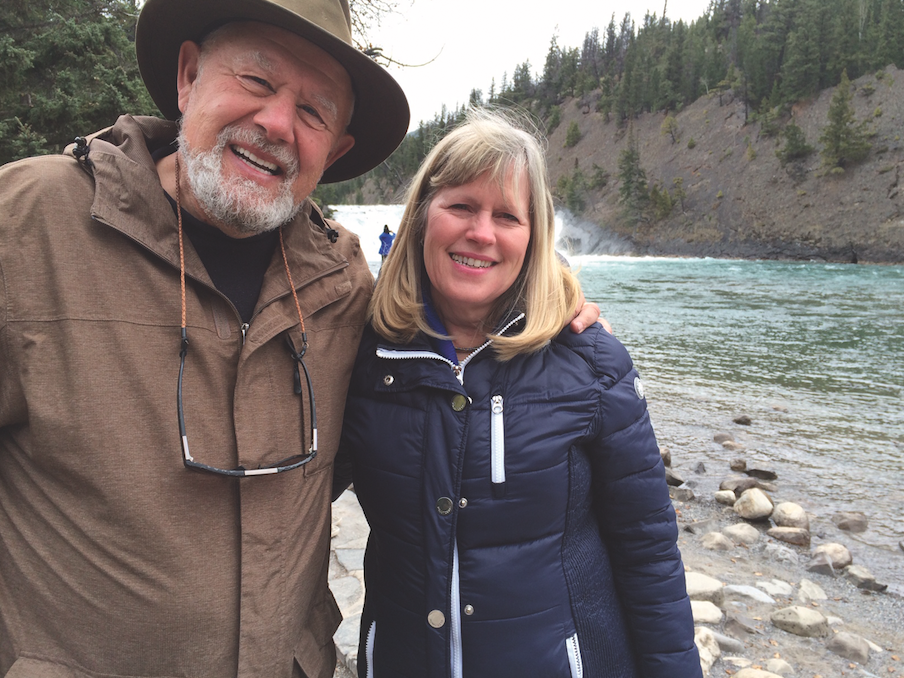


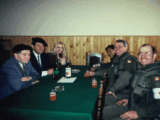

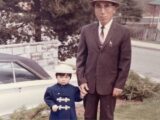


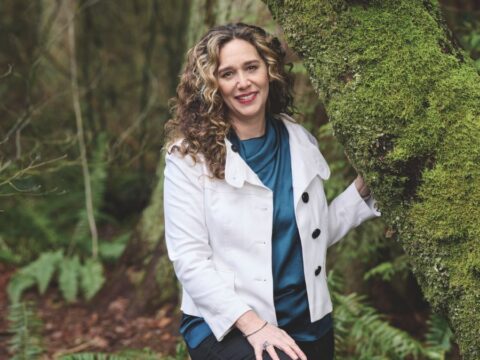

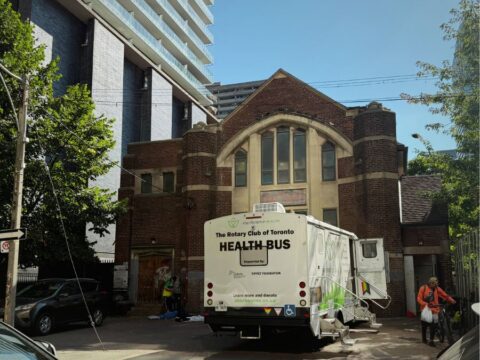
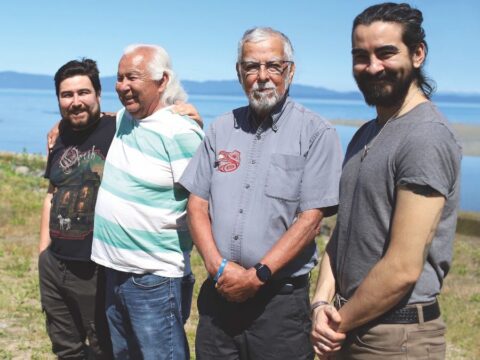
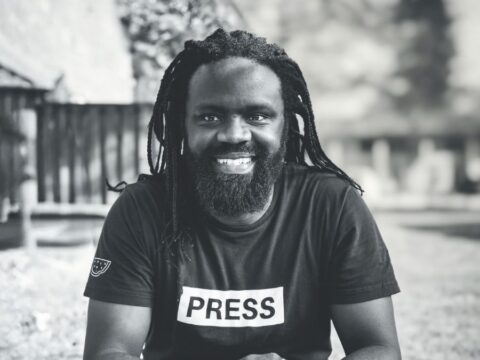
A loved-filled death, free of pain, surrounded by family. This is what we all want for those we love. It hurts deeply to lose them whether the date is planned or not.
It’s so hard to read about a loved one dying, this was done with such care and tenderness. It’s a relief to know that we live in a country where we don’t force suffering upon people.
I’m so touched by the journey that this family took. I’m thankful that we have these MAID teams to provide a peaceful way to eliminate days, weeks or months of agony. I hope that this is available in every corner of the country for those that value a service like this.
What a beautiful memory Judith Pettersen shared with us! Thanks Judy! I’m so grateful this is law in Canada!
Wonderful essay, Judy. <3
Very touching, though tough to read at points… Thank you for this, Judy!
What a wonderful description of such a hard moment to deal with. So much love and support for such an amazing man. I knew Clarence, he was smart, energetic, and compassionate. Even now I still forget he is gone and sometimes I still think I will run into him the next time I visit Flin Flon. I’m glad he got to pass under his terms, his dignity intact surrounded by the ones he loved the most.
Such a tender and thoughtful account of your final morning together. I’m grateful you shed light on the MAID program.
What a wonderful story of love and caring. It’s truly a blessing to leave this life on one’s own terms with loved ones gathered round. Too often, because of laws made in ignorance, those of us who are racked with pain have to suffer and watch those who love us suffer until we finally and mercifully take our last breath. Now, at last there is hope that we can consciously end our lives on a positive note. Nobody should be forced by law to go on living in pain and misery. I can feel Judith’s love all through her story. Thank-you, Judith, for sharing. Much love to you.
Many thanks to the MAID program and specially Judith Pettersen for sharing her experience. <3
Dear Judith
A year ago, Broadview published my reflection on my husband’s death. Reading this now, I am deeply touched. Such a beautiful and tender thing. Wrapping you in love with gratitude for your sharing.
I am a Mennonite- NOT of the Evangelical Variety! I want to go like Clarence when the time is there. Thank you for your courage and love.
So sorry for your loss, but peaceful at your experience. I was with my mother and my sister in their last weeks, and would have wished for an experience such as yours.
Incredibly moving. What a wonderful way to go…in your own home with your loved ones around you. God love Canada…health care, no assault weapons and assistance in dying with dignity.
I really appreciate Judy’s eloquent storytelling on her part in Clarence’s passing. What a beautiful and tragic tale of love and loss. Reading this makes me feel very proud of the time we live in and our Canadian health care system.
I am in awe of the love you shared, the difficult decision your husband made and the courage your family showed in supporting him. Peace.
I think that this is what most Canadians if given the chance would support this type of death.
If you have a disease like cancer one can only hope that you would be able to have this type of death rather than wait until you would not be able to have assisted-death.
I hope when my time comes that I will be able to do this as well. I do not wish to be kept alive when I am in great pain.
Judith writes this heart wrenching yet love filled telling of the journey with Clarence with such beautiful words that show the amazing depth of their relationship. I am thankful to have been given the opportunity to read their story of Clarence’s last day on earth with his family.
What a beautiful and sad description of your husband’s last day….. I do wish my husband had been able to talk with us, he was on life support after finding out 3 weeks before he had cancer…. But i knew he could hear us, and we were all there , and friends to say goodbye!
Some of us here in New Mexico are actively working to provide MAID for our citizens. Our Legislature is in session right now and our bill HB 47 will be heard for the first time this Friday. This is the 4th year that we are attempting to get it passed into law. Your story proves to me once again why we are working so hard to overcome the challenges and get it done. Thank you so much for sharing your story of love.